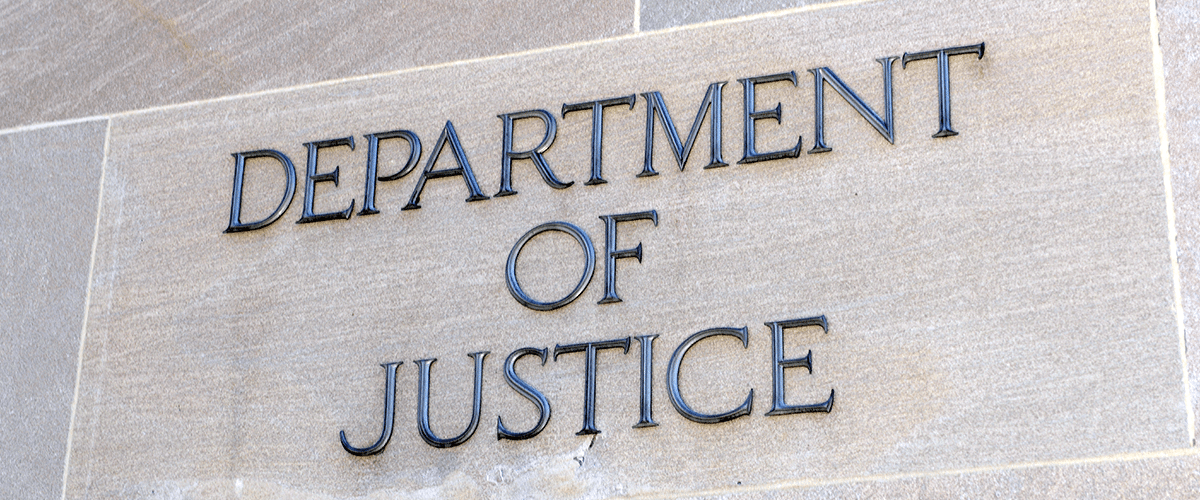[vc_row][vc_column][vc_column_text]
Attorney General Jeff Sessions has asked congressional leaders to undo federal medical marijuana protections, according to a May letter that recently became public.
Despite a growing body of research proving the opposite, U.S. Attorney General Jeff Sessions continues to argue that access to medical cannabis increases drug abuse and crime. Earlier this week, Tom Angell of MassRoots was given access to a letter that Sessions personally wrote to Congress in May, requesting permission to go after states that have legalized medical marijuana.
In the letter, Sessions writes:
“I believe it would be unwise for Congress to restrict the discretion of the Department to fund particular prosecutions, particularly in the midst of an historic drug epidemic and potentially long-term uptick in violent crime. The Department must be in a position to use all laws available to combat the transnational drug organizations and dangerous drug traffickers who threaten American lives.”
Sessions requested that Congress abolish the Rohrabacher-Farr Amendment, which prevents the use of federal funds to interfere in states passing or implementing medical marijuana policies. First passed in 2014, the amendment protects medical marijuana businesses and patients from federal prosecution. The spending budget passed in May renewed the amendment through September.
Sessions’ attempt to link legal medical cannabis and the “historic drug epidemic” is not just baseless, but completely inaccurate. It’s true that the nation is facing a serious drug abuse problem. Drug overdose deaths in the U.S. in 2016 exceeded an estimated 59,000, a 19 percent jump from the year before. However, this public health issue is predominantly caused by addiction and overdose of opioid substances – many of which begin as a medication prescribed by doctors. Every day in the U.S., about 1,000 people are treated in emergency rooms for not using prescribed opioids as directed, and 91 people die from an opioid overdose.
There have been zero reports of a person ever dying due to a marijuana overdose, according to the Drug Enforcement Administration, because cannabis does not have the ability to shut down the body’s breathing and blood circulatory systems. Additionally, it’s been shown time and time and time again that opiate use and abuse-related deaths and overdoses actually decrease in states with medical marijuana laws. Because of cannabis’ safety profile, researchers, physicians, advisory boards, and experts have urged for recommending cannabis to patients for pain management rather than opioids. Two-thirds of Americans believe opioid prescription drugs to be “riskier” to use than medical marijuana for pain management. The research strongly suggests that cracking down on medical marijuana laws as Sessions requests could make the opioid epidemic worse.[/vc_column_text][/vc_column][/vc_row][vc_row][vc_column][vc_single_image image=”17320″ img_size=”1200×250″ onclick=”custom_link” img_link_target=”_blank” link=”https://www.medicalmarijuanainc.com/majority-americans-believe-not-worth-cost-enforce-marijuana-prohibition-poll-finds/”][/vc_column][/vc_row][vc_row][vc_column][vc_column_text]Legalizing marijuana actually improves public safety by reducing the black market associated with cannabis. There is no evidence of a relationship between legal cannabis and permanent rise in violent crime, as Sessions suggests. In fact, a 2014 study examining the impact of medical marijuana legalization nationwide found that crime decreased in states following the passing of medicinal cannabis laws. Additionally, marijuana arrests affect communities of color, contributing to a hostile environment between police and the community. Only 30 percent of police officers in the U.S. believe marijuana should be illegal.
Sessions has made it clear in the past that he is “dubious” about the benefits of medical marijuana. However, cannabis has shown to possess therapeutic properties in decades of research, including a massive research review conducted earlier this year by the National Academies of Sciences, Engineering, and Medicine.
Luckily, the Rohrabacher-Farr amendment has significant bipartisan support in Congress and it is unlikely that Sessions’ request will ever be granted. Recent polls have found that 88 percent to 94 percent of American voters support legalizing the use of marijuana for medical purposes and nearly three-quarters disapprove of a federal crackdown.
In response to Sessions’ request, Rep. Dana Rohrabacher (R-Calif), one of the two lawmakers who introduced the Rohrabacher-Farr amendment, said, “Mr. Sessions stands athwart an overwhelming majority of Americans and even, sadly, against veterans and other suffering Americans who we now know conclusively are helped dramatically by medical marijuana.”
Twenty-nine U.S. states and Washington D.C. have passed laws legalizing marijuana use for medical purposes. Medical marijuana sales made up 55 to 60 percent of the total estimated $4 to $4.5 billion in U.S. cannabis sales last year. The American cannabis industry employs an estimated 165,000 to 230,000 full- and -part-time workers, and it simply doesn’t make sense for the Trump administration to adversely impact the burgeoning industry.[/vc_column_text][/vc_column][/vc_row][vc_row][vc_column][vc_column_text]Learn more about cannabis laws throughout the U.S. by visiting our education page. Keep up with the growing cannabis industry and Medical Marijuana, Inc.’s portfolio of companies through our news feed.[/vc_column_text][/vc_column][/vc_row]






